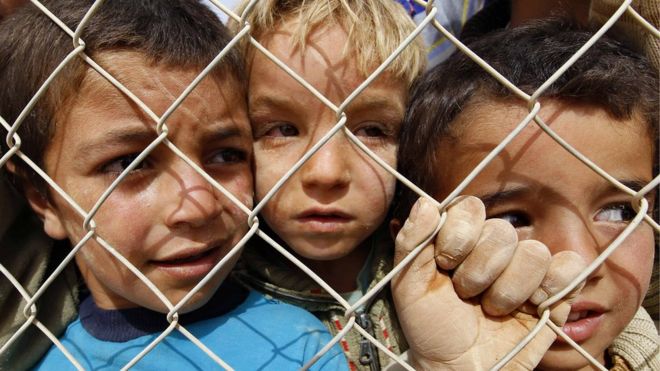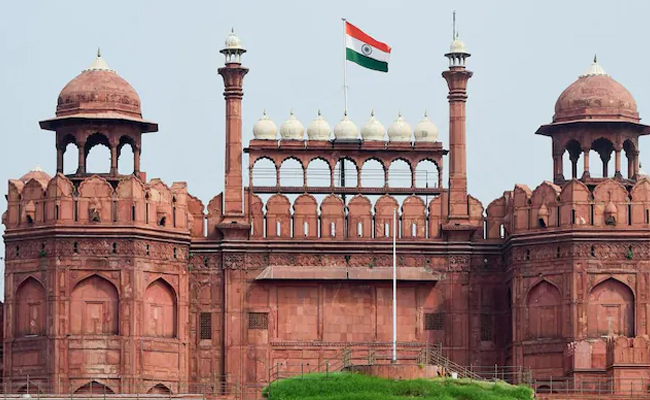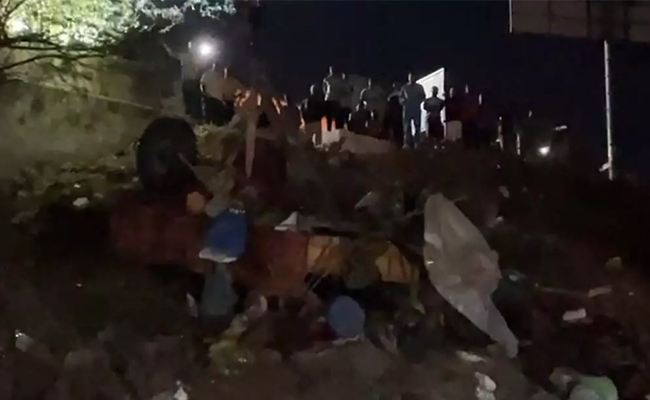United Nations: Children caught in war zones are increasingly being used as weapons of war -- recruited to fight, forced to act as suicide bombers, and used as human shields, Unicef has warned.
In a statement late Wedensday summarising 2017 as a brutal year for children caught in conflict, Unicef said parties to conflicts were blatantly disregarding international humanitarian law and children were routinely coming under attack, reports the Guardian.
Rape, forced marriage, abduction and enslavement had become standard tactics in conflicts across Iraq, Syria and Yemen, as well as in Nigeria, South Sudan and Myanmar.
Some children, abducted by extremist groups, are abused again by security forces when they are released. Others are indirectly harmed by fighting, through malnutrition and disease, as access to food, water and sanitation are denied or restricted.
Some 27 million children in conflict zones have been forced out of school.
"Children are being targeted and exposed to attacks and brutal violence in their homes, schools and playgrounds," said Manuel Fontaine, Unicef's director of emergency programmes.
"As these attacks continue year after year, we cannot become numb. Such brutality cannot be the new normal."
In Iraq and Syria children have reportedly been used as human shields, trapped under siege and targeted by snipers, while in Afghanistan nearly 700 children were killed in fighting in the first nine months of the year, the Guardian quoted the Unicef statement as saying.
Rohingya children in Myanmar were subject to systematic violence and driven from their homes. More than half of the 650,000 Rohingya forced over the border into Bangladesh are under 18.
The Unicef statement has called on all parties in conflicts to respect international humanitarian law and immediately end violations against children and the targeting of civilian infrastructure, including schools and hospitals. The agency also called on states with influence over non-state parties to conflict to use their influence to protect children.
Let the Truth be known. If you read VB and like VB, please be a VB Supporter and Help us deliver the Truth to one and all.
New Delhi (PTI): Security was tightened across key religious and heritage sites in Delhi on Saturday, including areas around the Red Fort and parts of Chandni Chowk, following intelligence inputs suggesting a possible terror threat, an official said.
Security agencies issued an alert on a possible explosion threat near Red Fort, a major tourist destination and high-security zone, after Central intelligence agencies indicated that Pakistan-based terror outfit Lashkar-e-Taiba (LeT) has allegedly kept prominent religious places in India on its target list.
Sources said specific inputs suggested that a temple in the Chandni Chowk area could be among the potential targets.
ALSO READ: Artificial intelligence, hologram tech bring 'Arjuna', 'Lord Krishna' at AI Summit
While the intelligence inputs are being verified and assessed, security has been stepped up in and around sensitive religious places and crowded public areas, they added.
Intelligence agencies indicated that LeT could be attempting to carry out an Improvised Explosive Device (IED)-based attack. The alleged plan is reportedly linked to attempts by the terror group to avenge the February 6 blast at a mosque in Islamabad, Pakistan, sources said.
Central agencies and Delhi Police units are maintaining close coordination, and surveillance has been intensified through CCTV monitoring, vehicle checks and deployment of additional personnel at vulnerable points. Bomb disposal squads, dog squads and quick reaction teams have also been placed on standby at strategic locations, they added.
The alert comes in the backdrop of the deadly car explosion near the historic Red Fort on November 10, 2025, which killed at least 13 people and injured more than 20 others. The blast occurred when a car loaded with explosives detonated near Gate No 1 of the Red Fort metro station, igniting multiple vehicles nearby and causing panic in the densely populated area.
Security agencies have urged people to remain vigilant and immediately inform police or emergency services about any suspicious objects or activity. However, officials said there is no cause for panic and that the measures are precautionary in nature.
Further intelligence gathering and verification of inputs are underway, an official said.





